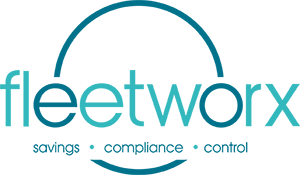01 Feb The Fleet FN50 announce huge profit gains – should fleet owners expect a share?
The past few years have seen considerable turmoil within the automotive sector. Significant macro pressures such as the ongoing war in Ukraine, supply chain disruption, COVID and the semi-conductor shortage have given the sector a roller coaster ride of supply and demand fluctuations that have led to a noticeable power imbalance between customer and supplier.
The result is that we can no longer be sure that current suppliers are delivering best-value, indeed many lessors have made considerable windfall profits at the expense of their loyal and trusting long-term clients.
Fleet News reports a combined pre-tax profit for the FN50 (the UK’s 50 largest leasing companies) of £2.04Bn, up £500m on the £1.5Bn achieved in 2022, and more than three times the £625m reported in 2021. According to FN, a meagre 4% year-on-year revenue increase highlights how record-breaking residual values (RVs) have driven the 36% rise in profits. FN report the turnover of the FN50 at a combined total of £13Bn, a £400m increase on the £11.6Bn reported last year, resulting in a profit margin for the collective (profit divided by its revenue) increasing from 13% to 17%.
FN show that Lex Autolease, the 2nd biggest vehicle leasing company, announced an increase in profit before tax of almost 26%, more than £110m, from £433m to more than half a billion (£544m), YOY, despite its risk fleet only increasing by 1.6%.
A performance explained by Lex Autolease and reported by FN, as the “impact of the global semiconductor shortage restricting supply across the auto industry, increasing the demand for, and value of, used vehicles, leading to continued strong profits on vehicle disposal.”
FN also report that Zenith, the UKs seventh largest leasing company, has enjoyed turnover and EBITDA profit growth of 16.8% (£589.1M to £688.1M) and 6.3% (£74.7m to £79.4m) respectively, the profit growth being attributed to high RVs, a growth in fleets size and increased rental activity.
The almost frenzied used-car activity witnessed during 2022 has slowed and, according to FN, Sep ’23 recorded the largest drop in used car values (1.9%) at the three-year 60,000-mile point, seen in the past 15 years. However they contextualise this data by quoting Derren Martin, Director of valuations at Cap HPI “used car values currently remain some 25%-30% above where they were before those extraordinary increases in 2021 ….the downwards movements are a relatively gentle realignment, not a crash …”Whilst Cox Automotive are quoted as predicting that used car transactions for 2023 will exceed 7.1m units, a 4% YOY increase.
Gain on Sale Revenues
As we outline in our popular EBook, “Fleet Contracts: Avoiding Commercial Trapdoors” , Gain on Sale is a routine part of a lessor’s revenue model. And the huge increase in RVs of fleet vehicles has seen lessors make huge gains in the forward-sale of returning cars. As we suggest in our EBook, gain on sale is prone to manipulation and can be particularly profitable for lessors, hence fleet owners always run the following risks:
- lessor sets the RV at an artificially high level to reduce the rental and win the business
- mileage variation parameters are then set low by the lessor forcing the majority of contracts to be amended part way through – reducing their RV liability.
- as is patently clear, lessors can make significant profit on vehicle resale unless this is shared or returned to the client
- costs of sale are typically deducted from sales proceeds at an unreasonable level.
…whilst we recommend at least the following interventions to mitigate these risks:
- what happens when the vehicle sells for more than the RV? Is the surplus retained, shared or returned to the client?
Fleetworx will always negotiate these terms with the lessor at the outset of a contract, forecasting likely returns from a what-if cost model based on historic RVs.
- If a vehicle exceeds or under-runs its parameter (mileage, duration) how is the RV adjusted? Is it a fair mechanism?
Fleetworx represent our clients in these debates, drawing on years of experience in creating favourable commercial terms for variables such as RV.
Supplier Negotiation
The negotiation with suppliers about gain on sale is just one of many commercial discussions Fleetworx undertake on behalf of our clients. When it becomes obvious, however, that a recalibration from the supply chain is the best way forward to protect the interests of our clients, our experience tells us that a formal process (RFP) always delivers significantly better results, not only in terms of headline pricing, but also in other key commercial components.
We have also found that re-focusing on what you want from your fleet supplier presents new outsource opportunities that will deliver soft savings within your organisation.
Fleetworx has been helping multi-national organisations optimise their fleet supply agreements for nearly 20 years – we would be very interested to hear about your challenges, and demonstrate how we can guarantee the ROI that we deliver for our clients.
NEW: FleetScan
NEW: FleetScan – a FREE FleetScan from Fleetworx will provide you with a comprehensive review of your company car fleet, advising on supplier alignment and cost-saving initiatives.
Apply for your FleetScan and take control of your company car fleet.
Back to Blogs Back to Case Studies List

Sorry, the comment form is closed at this time.